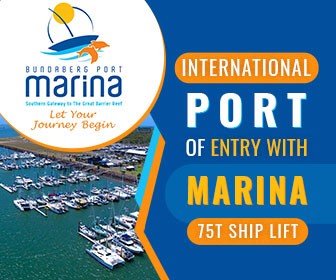Newcastle and Port Stephen - Metal Work
Looks like we do not have much content for this section - but be sure to check Related Businesses. Help us improve the content by sending your feedback and recommended businesses to editor@noonsite.com.
Next Section: Repair Facilities: Hull & GPR
Related to following destinations: Australia, New South Wales, Newcastle and Port Stephen
Port Navigation
Courtesy Flag Discounts


YachtFlags.com provides high quality courtesy flags that are manufactured in durable Knitted Polyester fabric. Knitted so that the fabric itself does not deteriorate in the constant movement that marine flags are usually exposed to, and polyester so that the flag does not weaken in the strong UV-light usually found in the main sailing areas of the world.
YachtFlags.com offers a discount to Noonsite members.
Use the coupon code NOONSITE_5A2B when checking out to get 10% off today.
Buy Now On YachtFlags.comMain Ports - Australia
Courtesy Flag Discounts


YachtFlags.com provides high quality courtesy flags that are manufactured in durable Knitted Polyester fabric. Knitted so that the fabric itself does not deteriorate in the constant movement that marine flags are usually exposed to, and polyester so that the flag does not weaken in the strong UV-light usually found in the main sailing areas of the world.
YachtFlags.com offers a discount to Noonsite members.
Use the coupon code NOONSITE_5A2B when checking out to get 10% off today.
Buy Now On YachtFlags.com








The following comment is posted by Noonsite with the permission of Hervé Michel. Noonsite is currently investigating this issue on behalf of Hervé and is seeking clarification from officials at Australia’s Department of Agriculture, Fisheries & Forestry.
………………………………………………………….
I am Hervé Michel, owner of the sailboat Mouez Avel, French flag.
I would like to report a problem when I arrived in Australia in Newcastle at the end of January.
Thanks to your always very useful information, I applied for a visa and completed the pre-arrival procedures in Newcastle before leaving Nelson in New Zealand.
I reported my arrival 12 nm from my arrival and respected the instructions given by the Australian administration.
The customs/immigration visit went very well. Courteous and efficient as always.
On the other hand, I would like to point out that the Biosecurity services asked me to pay them an invoice of AUS$435 and then the Newcastle Marina another invoice of AUS$450 to “dispose” of my bins. I’m not talking about the cost of parking my boat for the day (AUS$72).
I find this price of AUS$885 (US$550) very exaggerated to “dispose” of the trash of a single person for 10 days. Even if that included in part some fresh food left over from NZ… The customs officer who came on board the next day to give me the navigation license (free) and to whom I spoke about this prohibitive sum, called the marina manager and after a brief conversation, clearly told me that it was a scam. Too sad for a first experience in a new country, and not one from the third world!
The Biosecurity Fees can add up when entering Australia. Both New Zealand and Australia have strict rules. Here are a few suggestions I found helpful.
As posted on Noonsite, Biosecurity in Australia charges by the 15 minutes to inspect vessels. This includes cabinets, lockers, engine compartment, refrigeration, hull, wood, etc. The time of inspection is partly dependant on the owner(s) of the vessel making sure they have complied with documentation concerning maintenance and logbooks being kept up to date. Our inspection took less than 45 minutes. We have heard from officials in New Zealand and Australia of cruisers arriving without proper documentation or not being in compliance taking 2 hours or more.
Prior to setting sail for Australia we had to change port of arrival. Both ports sent arrival information including fees for incinerating trash on board. However, I am not sure if all entry ports provide this information but it is a good idea to ask. The entry port (marina) is responsible for separating the trash by type, bagging it and incinerating the trash. The fees are by the weight and type of rubbish. Typically the charge is by the kilogram or part thereof.
One of the suggestions listed by both New Zealand and Australian Biosecurity is to rid the vessel of as much rubbish as possible prior to sailing to those countries. They also suggest removing items not allowed to be imported like certain items made of natural materials. Rather than have items go through inspection and risk losing the items to the incinerator, I shipped home items made of natural materials that we wanted to keep (i.e. souvenirs).
In order to limit our trash onboard, I remove all the outer wrappings and put the food into reusable containers. That way we simply washed out the containers and have no trash onboard. Any leftover or unused food waste is biodegradable and is disposed of legally outside the waters of the country prior to entering. I hope this will help others planning to visit New Zealand and Australia.